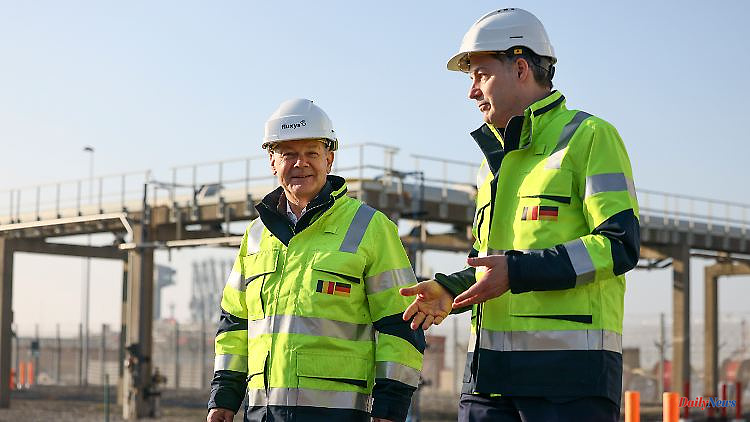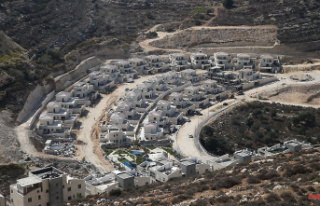More offshore wind energy, an infrastructure for hydrogen and better distribution of liquefied natural gas: Brussels and Berlin want to take more responsibility for Europe's energy supply, said Chancellor Scholz and Belgium's Prime Minister De Croo at their meeting.
Germany and Belgium want to expand their cross-border gas and electricity connections together. During a visit to the seaport of Zeebrugge, Chancellor Olaf Scholz welcomed the fact that Belgium had expanded the capacities in its gas network after the Russian attacks on Ukraine. "I made it clear that we will also expand the corresponding line capacities in Germany," said Scholz after a meeting with Belgian Prime Minister Alexander De Croo.
The liquefied natural gas (LNG), which is landed via Belgian ports and forwarded to the east, can then be distributed in Germany or to countries such as Austria, the Czech Republic or Slovakia. "We also have a joint responsibility that goes beyond both countries," said Scholz.
A bilateral declaration also mentions the need for an efficient hydrogen transport network. Belgium is expanding a corresponding infrastructure. The bilateral hydrogen network should be operational by 2028. The companies would have to work together. Offshore wind energy is to be further expanded.
The EU member Ireland, but also Great Britain should be more closely connected to the European energy grid, it is said. The transmission system operators Amprion and Elia also submitted a declaration of intent to build a second cross-border electricity connection, a so-called interconnector.
Scholz and De Croo emphasized that the expansion of European grids increases security of supply. However, the interconnector will be a long time coming: Amprion and Elia want to present a concept paper by mid-2024. Amprion announced that commissioning is not expected until 2037 at the earliest.












